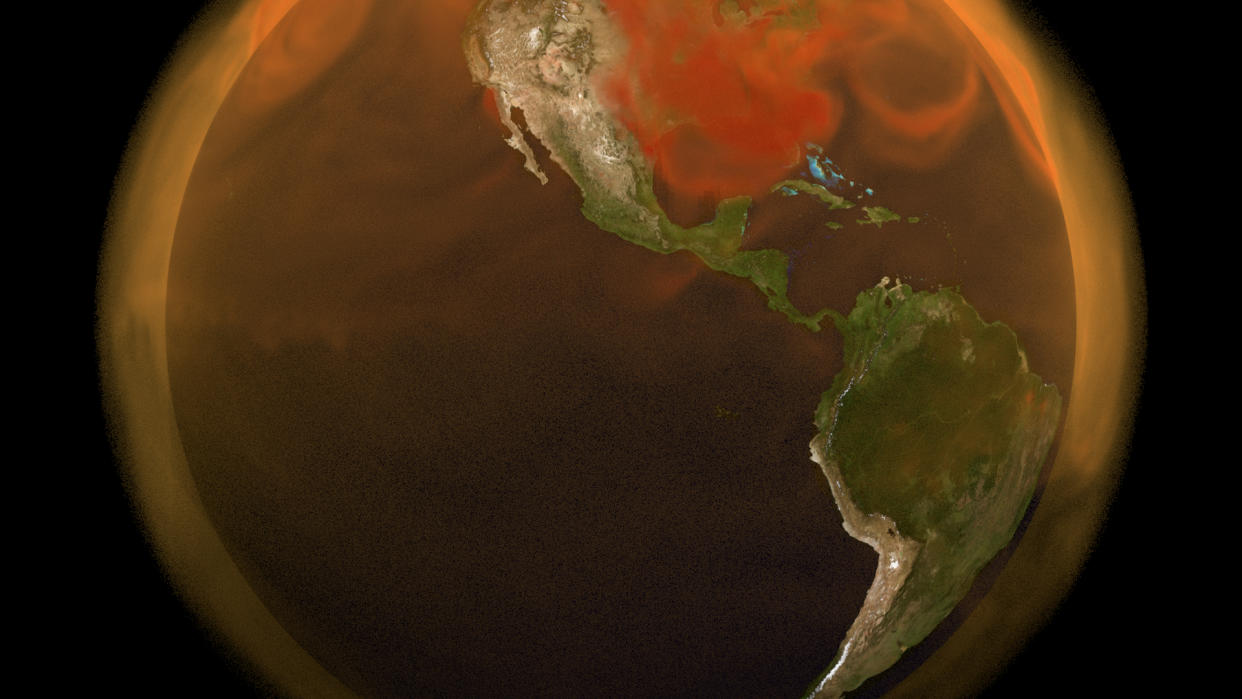NASA's new 'Greenhouse Gas Center' tracks humanity's contribution to climate change

At the end of November, The White House shared how the Biden-Harris Administration aims to combat climate change by increasing the monitoring and measurement of our nation’s greenhouse gas emissions. But this is not a topic for government eyes only; if you are interested in learning more about climate change and having access to this important climate data, experts say the public can now do so through something called the U.S. Greenhouse Gas Center.
At the 28th annual United Nations Climate Conference (COP28) on Monday, National Aeronautics and Space Administration (NASA) Administrator Bill Nelson, along with other government leaders, announced this hub will be a one-stop shop where people can learn more about our climate and the dangers we are facing as human-driven global warming ramps up.
"NASA data is essential to making the changes needed on the ground to protect our climate. The U.S. Greenhouse Gas Center is another way the Biden-Harris Administration is working to make critical data available to more people — from scientists running data analyses, to government officials making decisions on climate policy, to members of the public who want to understand how climate change will affect them," Nelson said in a recent agency statement. "We're bringing space to Earth to benefit communities across the country."
Related: Earth is getting hotter at a faster rate despite pledges of government action
Other partners include the Environmental Protection Agency (EPA), the National Institute of Standards and Technology and the National Oceanic and Atmospheric Administration (NOAA). Together, science experts from these agencies were able to create a place where members of the public, the U.S. government as well as non-profit and private sector organizations can access a variety of data, observations and computer models that monitor changes in greenhouse gases and emissions.
"A goal of the U.S. Greenhouse Gas Center is to accelerate the collaborative use of Earth science data," Argyro Kavvada, center program manager at NASA Headquarters in Washington, also shared in the same agency statement. "We're working to get the right data into the hands of people who can use it to manage and track greenhouse gas emissions."
Related Stories:
— Climate change keeps space debris afloat longer
— The 'safe' threshold for global warming will be passed in just 6 years, scientists say
— Climate change has pushed Earth into 'uncharted territory': report
For now, users can obtain information that focuses on how human activities are contributing to greenhouse gas emissions, where natural greenhouse gases originate — both in the ocean and on land — and use data taken from both aircraft and space to identify any large events associated with methane emissions. In order to continue to advance this hub, NASA leaders invite users to not only explore all of the site's tools but continuously offer feedback and ideas through its support and analysis hub beginning with the Introduction to the US GHG Center.
